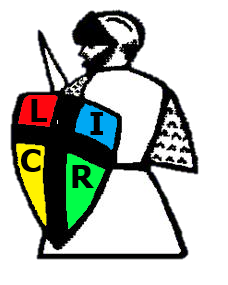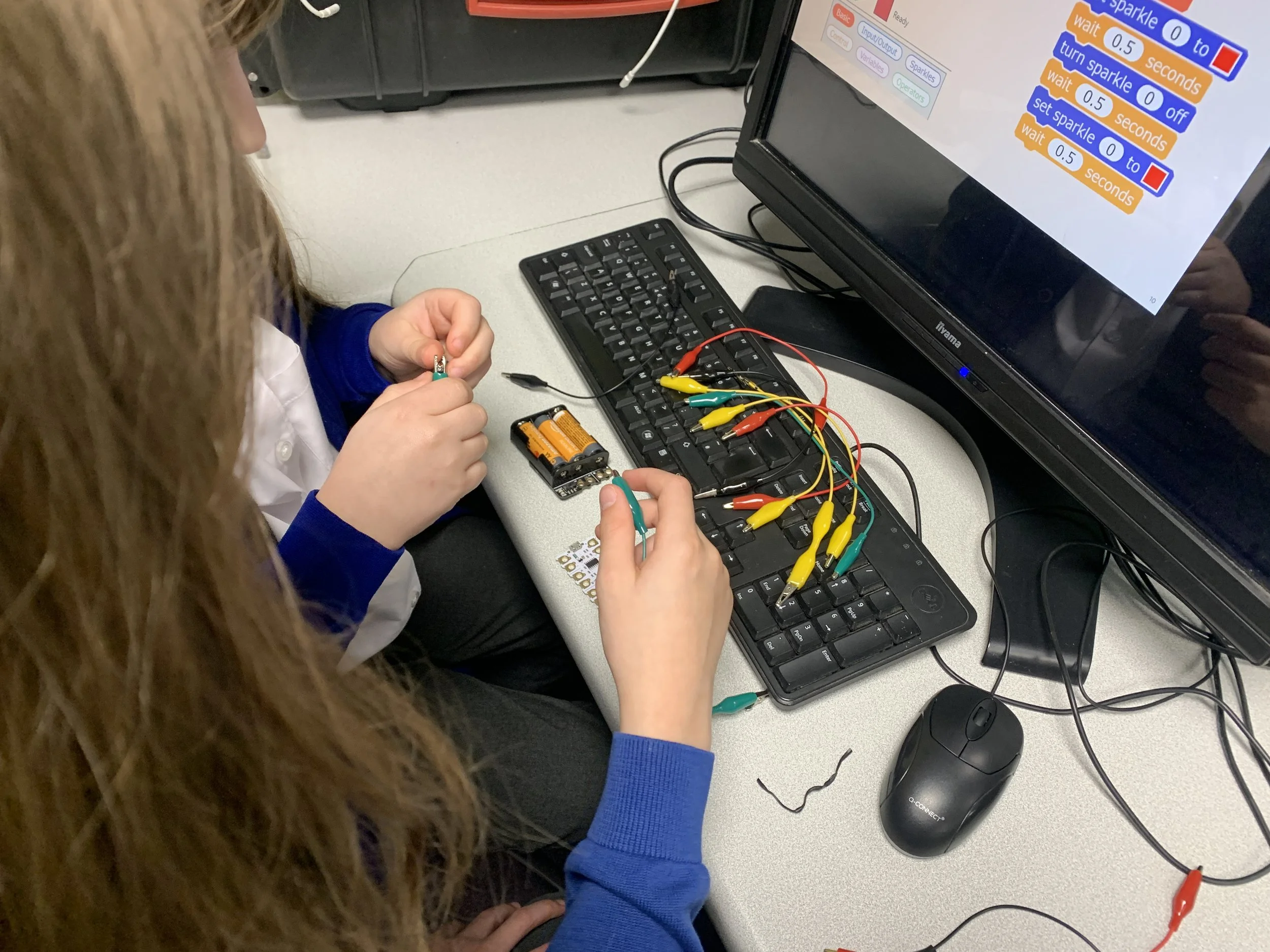St Michael’s Curriculum
-
At St. Michael’s we deliver an exciting, innovative English curriculum which enables and empowers children’s written and oral communication and creativity. English teaches children to speak and write fluently, so that they can communicate their ideas and emotions to others. Through reading in particular, pupils have a chance to develop culturally, emotionally, intellectually, socially and spirituality. Reading is fundamental to learning, and our teachers are passionate about developing a love of literature throughout the school, as well as promoting the key skills of word reading and comprehension.
-
We use Bug Club to teach Early Reading and Phonics .
-
Through focusing on maths mastery, a growth mindset and the belief that everybody can achieve - our vision is that all children will not only succeed with a smile in their maths learning but also build solid foundations for all learning in future years.
Our desire is for children to look back on their time at St Michael’s CE Primary and be secure in the knowledge that they not only achieved in maths but it is where seeds of perseverance and resilience were also sown and nurtured.
-
“Religious Education in a Church school should enable every child to flourish and to live life in all its fullness. (John 10:10). It will help educate for dignity and respect encouraging all to live well together.” Statement of Entitlement C of E.
R.E. at St. Michael’s will feel alive for all children, helping them to understand the world around them and how people are influenced or guided by their beliefs. This will start through Collective Worship which will give all a sense of belonging and connectedness, while curriculum content will be focussed on Christianity and one other World Faith / view per year. Over a year, children will learn how these beliefs or ways of life impact on individuals and communities, and as such build up a better understanding and appreciation for all people. Across their time at St. Michael’s, the children will regularly experience the school Christian Vision Proverbs 22:6 “Start children off on the way they should go, and even when they are old, they shall not turn from this” in practical terms across the curriculum and within RE recap previous years’ learning so that they build up a picture of how different religions / belief systems work.
Lessons can take many forms, as writing is not the be all and end all of R.E. The aim is to engage the children so that through a key question, learning can take place both within a lesson, across a series of lessons, and as the children’s understanding of religion grows, connection and comparisons made between the religious (and non-religious) beliefs and practices
-
At St Michaels’ our art curriculum is organised into different artistic disciplines, giving the children opportunities to learn through drawing, painting, printmaking, 3D Sculpture and collage. We have also carefully planned our significant artists and designers to ensure all children are inspired and creative learners, recognising art from a range of time periods and cultures. Art, craft and design embody some of the highest forms of human creativity, and we aim to equip learners with the knowledge and skills to experiment, invent and create their own works of art, as well as think critically, developing a more rigorous understanding of art and design.
-
At St Michael’s we know the importance of a high-quality computing education that equips pupils to use computational thinking and creativity to understand and change the world. Computing has deep links with mathematics, science, and design and technology, and provides insights into both natural and artificial systems. The core of computing is computer science, in which our pupils are taught the principles of information and computation, how digital systems work, and how to put this knowledge to use through programming. Building on this knowledge and understanding, our pupils are equipped to use information technology to create programs, systems and a range of content. Computing also ensures that pupils become digitally literate – able to use, and express themselves and develop their ideas through, information and communication technology – at a level suitable for the future workplace and as active participants in a digital world.
-
At St Michael’s, we know that design and technology is an inspiring, rigorous and practical subject. Using creativity and imagination, our pupils design and make products that solve real and relevant problems within a variety of contexts, considering their own and others’ needs, wants and values. They acquire a broad range of subject knowledge and draw on disciplines such as mathematics, science, engineering, computing and art. Our pupils learn how to take risks, becoming resourceful, innovative, enterprising and capable citizens. Through the evaluation of past and present design and technology, they develop a critical understanding of its impact on daily life and the wider world. We understand that high-quality design and technology education makes an essential contribution to the creativity, culture, wealth and well-being of the nation.
Our curriculum is carefully sequenced to ensure that children build upon their prior learning. In Early Years, children learn the foundation of this subject discipline through developing their knowledge of tools and materials and being given the freedom to develop their innovative designing skills. From Year 1, children experience three units per year (one per term) and these have been carefully mapped out to ensure regular repetition and development of key concepts in the subject. Units begin with a recap of prior knowledge and learning.
-
Every class has a French lesson once a week. We are unique in Primary schools in the area in offering a foreign language throughout the curriculum. The specialist French teacher is Madame Betteridge. French lessons start in Reception and continue through all their years at St. Michael's. Each year group are able to explore the language and culture in fun and exciting learning experiences; such as egg rolling, kings day, celebrating Christmas/Easter, games and role play. In Year 6, the children are lucky enough to take an educational trip to France. They are able to use the knowledge and language that they have built up over their time at St. Michael's. Not only can they apply the language but they are able to explore the French culture and traditions.
-
At St Michael’s C of E Primary, we want all of our children to develop a love of Geography and have a deep understanding of the geographical concepts that they learn. We want our pupils to have a thorough knowledge of their local environment and show curiosity about the wider world; enabling them to become global citizens who show a keen interest in the geography around them. We want them to have ambitions of travelling to unknown destinations and inspire them to take an active role in preserving the future of our planet. Through our teaching, the children will acquire knowledge of a range of different cultures and traditions and learn tolerance and understanding of other people and environments which link with love of one another, love of mankind, love of life itself and let peace dwell here.
The aims of the National Curriculum are to:
- develop contextual knowledge of the location of globally significant places – both terrestrial and marine – including their defining physical and human characteristics and how these provide a geographical context for understanding the actions of processes.
- understand the processes that give rise to key physical and human geographical features of the world, how these are interdependent and how they bring about spatial variation and change over time.
-
At St Michael’s, we know the importance of understanding our past, and that of the wider world. Our History lessons aim to be dynamic, immersive and inspirational; encouraging children to ask questions, be curious and think critically about the past of the world around them.
Our History curriculum is designed to enable all pupils to understand how life has changed over time in Great Britain and elsewhere, and what has influenced those changes. Children will learn to analyse different types of evidence, and develop their own arguments and judgements, and have sound knowledge of many of the events throughout history that have shaped our lives today.
-
At St. Michael’s Primary school, our intention is to develop a love of music in all children by ensuring that all pupils have an opportunity to perform, listen to and evaluate music across a range of genres, styles and traditions. We aim to provide opportunities for all children to learn how to sing and to use their voices, to create and compose music on their own and with others, to learn a musical instrument and use technology appropriately. Our curriculum will ensure that all children will endeavor to understand and explore how much music is created, produced and communicated, including through the inter-related dimensions: pitch, duration, dynamics, tempo, timbre, texture, structure and appropriate musical notations.
-
At St Michael’s Primary school, our intention is to deliver a high-quality physical education curriculum that inspires all pupils to have a lifelong passion for PE, which in turn will enable them to succeed and excel in competitive and non-competitive sport and other physically-demanding activities. We aim to provide opportunities for all pupils to become physically confident in the FUNdamentals and sport specific skills, irrelevant of their needs. We believe that opportunities to compete in sport and other activities build character and help to embed values such as fairness and respect. As well as our school values of love, integrity, creativity and resilience.
Our curriculum for physical education aims to ensure that all pupils develop the competence to excel in a broad range of physical activities, are physically active for sustained periods of time and give them the tools and knowledge to lead healthy, active lives now and into adulthood.
-
Item description
-
At St Michael’s Primary School, our intention is to equip children the skills which will enable them to confidently explore and discover the world around them, so that they have a deeper understanding of the world we live in. We aim to create fun and stimulating science lessons that nurture children’s natural curiosity and their on-going development. Our curriculum promotes questioning, challenge, working practically, investigating, evaluating, making choices, working independently and using scientific vocabulary. Children will develop an understanding of how important and relevant science is to their lives, now and in the future in a world which is changing rapidly. We aim to promote a love of science which inspires pupils to consider a future career in the sciences.

